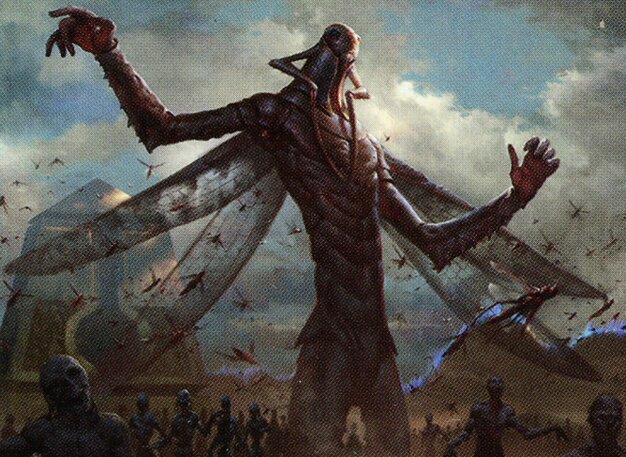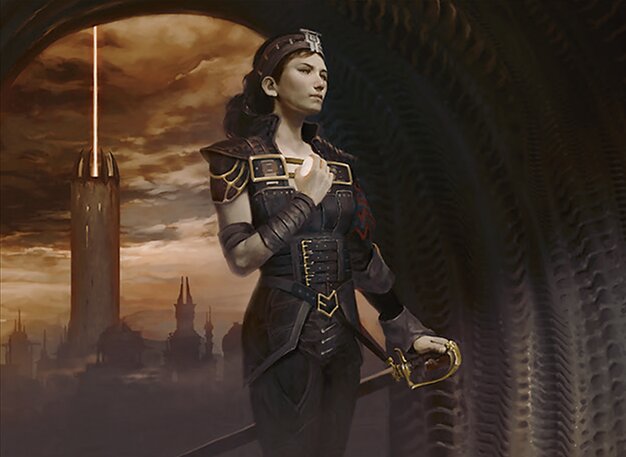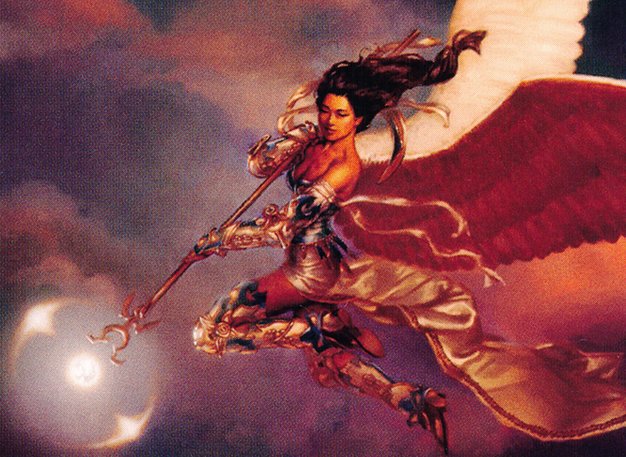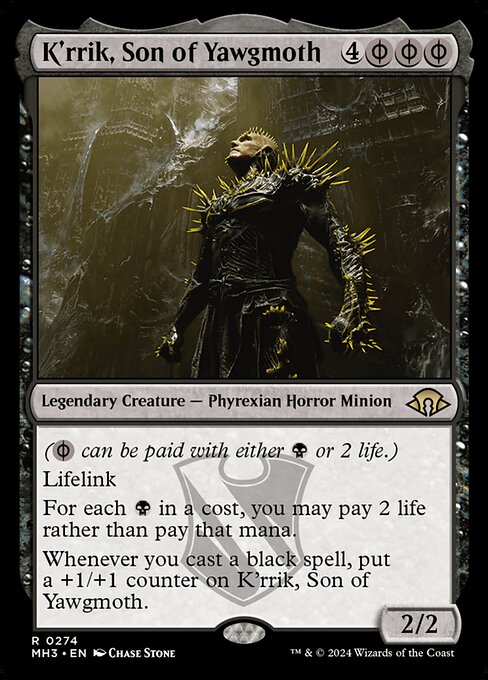Deck & Commander Strategies

The Locust God
Draw and discard cards to generate numerous insect tokens, using wheels to refill the hand and maintain board presence until overwhelming opponents through token swarms.

Xantcha, Sleeper Agent
Aggressive Rakdos deck focused on attacking early and often, disrupting opponents through discard effects and leveraging sacrifice synergies to maintain pressure.

Bruna, Light of Alabaster
A white-black angel tribal deck that aims to control the board with flying creatures and resilient threats, applying pressure with powerful angels and gaining incremental advantage.

K'rrik, Son of Yawgmoth
Utilizes Phyrexian mana to pay life instead of mana costs, enabling fast deployment of spells and combos, with a focus on life payment to accelerate the game and achieve explosive turns.
Gameplay Insights
- 1
The Locust God player's use of wheel effects was pivotal in generating a large board presence through insect tokens and refilling their hand.
- 2
K'rrik's ability to cast spells by paying life instead of mana allowed for faster, more explosive plays, putting pressure on opponents to respond quickly.
- 3
Xantcha's aggression and discard mechanics disrupted opponents' plans and maintained offensive momentum throughout the game.
- 4
Bruna's deck relied on flying angels to stabilize and control the board, forcing opponents to answer resilient threats.
- 5
The multiplayer interaction created a dynamic game flow with frequent shifts in tempo due to board wipes, token generation, and combo attempts.
Notable Cards
-

The Locust God
-

Xantcha, Sleeper Agent
-

Bruna, Light of Alabaster
-

K'rrik, Son of Yawgmoth
Gameplay Summary
The game unfolded as a high-powered multiplayer Commander match featuring K'rrik, Son of Yawgmoth; Xantcha, Sleeper Agent; Bruna, Light of Alabaster; and The Locust God.
Each player brought a distinct strategy to the table, resulting in dynamic interactions and shifting board states.
The Locust God deck focused on drawing and discarding to generate a swarm of insect tokens, leveraging card wheels to maintain a steady flow of resources.
Xantcha's Rakdos-themed deck aimed to disrupt opponents and apply pressure quickly with aggressive attacks and sacrifice synergies.
Bruna's deck, piloted by Lynch, was a more traditional white- and black-based approach with a strong focus on powerful angelic creatures to establish board dominance.
K'rrik's deck was built around a Phyrexian mana theme, enabling fast and efficient life payment to cast spells, accelerating the game pace and enabling combos.
Key turning points involved strategic wheel effects from The Locust God player that replenished hands and created a large token army, while Xantcha used aggressive swings and discard effects to destabilize opponents.
Bruna leveraged big flying creatures to apply pressure and stabilize the board.
Meanwhile, K'rrik capitalized on Phyrexian mana to quickly deploy threats and combos, forcing opponents to respond swiftly.
The win conditions varied from overwhelming board presence and damage through tokens and angels to comboing out with Phyrexian mana payoffs or attacking with Xantcha's aggressive creatures.
Board wipes and interaction attempts kept the gameplay tense and strategic, showcasing the decks' absurd potential in a multiplayer setting.















![Commander VS Special: Kresh vs Xantcha vs Rhys vs Atraxa [EDH] thumbnail](https://i.ytimg.com/vi/3F2CvGLBGvw/sddefault.jpg)










![Commander VS S17E2: K'rrik VS Gerrard VS Volrath VS Elsha [EDH] thumbnail](https://i.ytimg.com/vi/yfRsKaCJCSA/sddefault.jpg)







![Commander VS S16E7: The Locust God VS Horde of Notions VS Tatyova VS Balan [EDH] thumbnail](https://i.ytimg.com/vi/yqrnU70Qx6I/sddefault.jpg)













